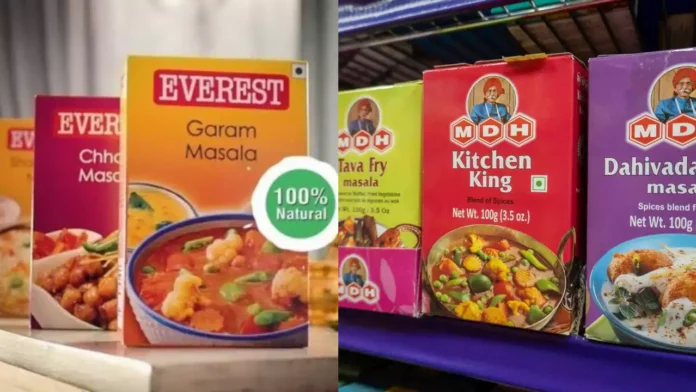One out of every three household consumers are likely to refrain from buying spices from MDH and Everest, given the recent quality check cases against them. Additionally, six out of every ten consumers express a lack of confidence in the actions taken by FSSAI and state food departments on the matter so far, according to a survey by LocalCircles.
The central government, through FSSAI, has instructed MDH and Everest to take “corrective measures” following the discovery of allegedly high levels of pesticide ethylene oxide in their spices, exceeding permissible limits. To probe further into the recall, the Spice Board of India is reportedly conducting tests on spice samples from these two companies.
Late last week, Nepal joined Singapore and Hong Kong in prohibiting the sale of certain mixed spice products from these two companies. According to Reuters, the US FDA is also looking into products from both of these brands for possible pesticide contamination, according to an FDA spokesperson.
Continue Exploring: Nepal bans import, sale of Everest and MDH spices over ethylene oxide concerns
LocalCircles conducted a follow-up survey to assess consumer sentiment on the matter, aiming to understand households’ altered consumption patterns regarding these brands and their satisfaction levels with the actions taken by FSSAI and the state food department.
The survey garnered more than 27,000 responses from household consumers across 306 districts of India. Of the respondents, 61% were male and 39% were female. Regarding the distribution, 40% were from tier-1 cities, 27% from tier-2 cities, and 33% from tier-3, 4, and rural districts.
The survey was executed through the LocalCircles platform, and all participants were verified citizens required to be registered with LocalCircles to partake in the survey.
According to the survey findings, 36% of consumers are inclined to abstain from purchasing spices from the two brands in the foreseeable future. Conversely, 17% of consumers are inclined to persist with their purchases despite the safety concerns associated with these brands.
Approximately 58% of surveyed consumers expressed that the actions taken by the food regulator thus far have failed to inspire confidence in food safety. Meanwhile, 28% indicated that they are unaware of the actions that have been undertaken thus far.
Continue Exploring: MDH and Everest spice controversy threatens over half of India’s spice exports, urgent action needed: Report
Since the spice issue came to light, less than five out of 30 states in India have initiated active audits of food manufacturing units and restaurants.
Respondents lamented the slow response of Indian authorities in contrast to other nations’ proactive measures to safeguard consumers by ensuring the safety of all edible products.
According to feedback from food business owners, as posted on LocalCircles, the licensing, auditing, and enforcement processes concerning food are marred by bribery and mismanagement in various regions of India, often involving the engagement of agents or middlemen for various tasks.
Respondents suggested that FSSAI, as the central food regulator, should contemplate adopting a centralized system akin to the passport office, rather than depending on state food departments, which lack a direct reporting line to FSSAI. Until such reforms are implemented and food safety is improved in India, consumer trust in food will likely remain low.
Continue Exploring: Spices Board issues comprehensive guidelines to curb ethylene oxide contamination in Indian spice exports





